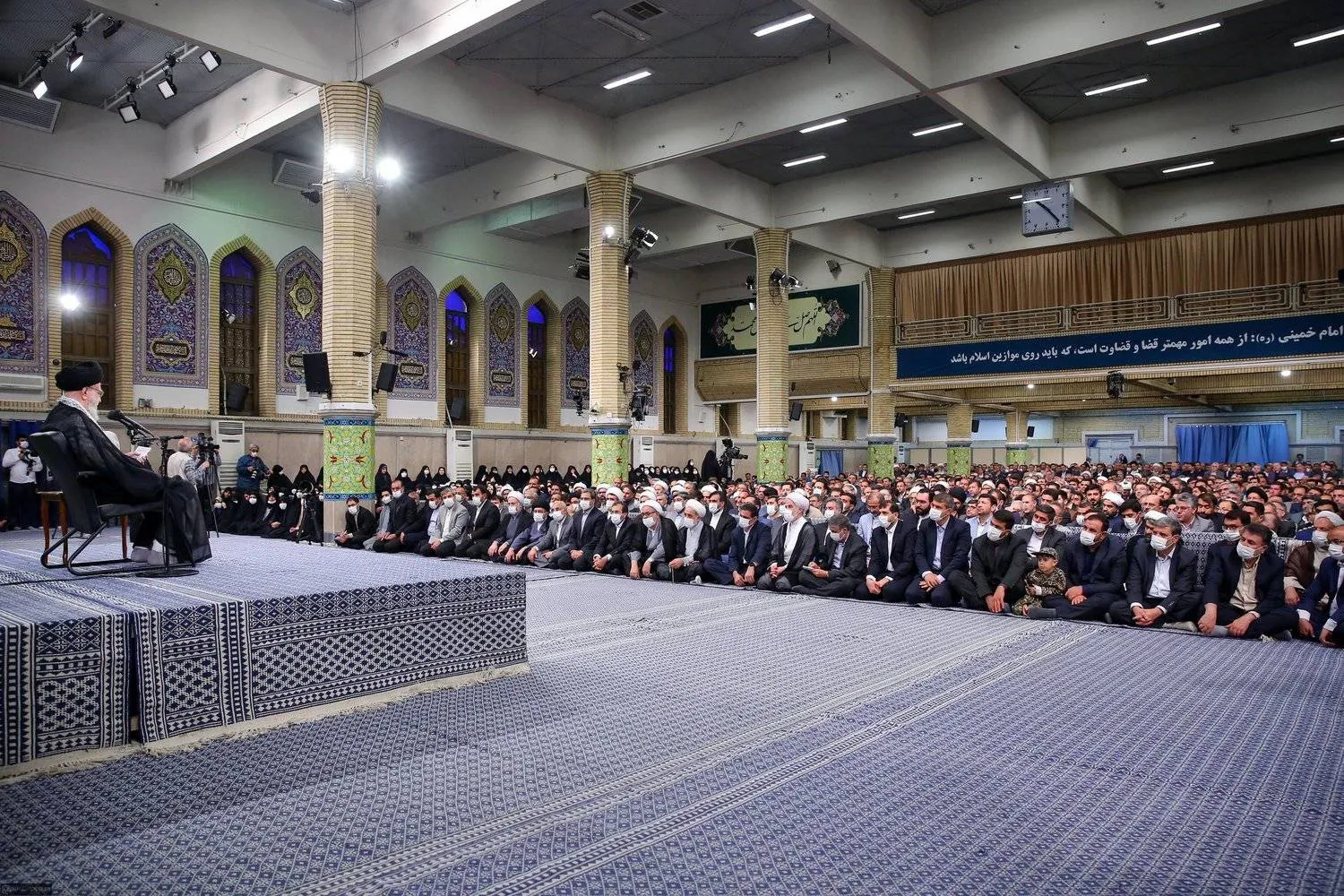Iran's Supreme Leader Ali Khamenei has called on the judiciary to take serious steps to control social networks and tighten control over cyberspace.
"The prevention of startling and disrupting the mental security of people in the real world and the world of cyberspace is one of the manifestations of securing public rights. The judicial system must attend well to this difficult task with planning, discipline, and rules,” Khamenei told a group of officials and judiciary members.
Khamenei also considered it essential to ensure that people have lawful freedoms.
"According to the precise interpretation of the constitution, all the freedoms allowed by the Sharia law must be provided to the people. The institutions usually oppose these freedoms, and the judiciary must fulfill its duties."
Khamenei criticized the judiciary's image in the media and recommended taking measures to improve it.
He accused the media of tarnishing the judiciary's image, noting that media and advertisements were not effectively utilized to showcase and inform the public about its extensive work.
During the months that followed the "Woman, Life, Freedom" protests after the death of the young Kurdish woman, Mahsa Amini, last September, the Supreme Leader increased his criticism of the management of the Internet and social networks.
Earlier this month, Khamenei accused Western powers, led by the US, of "engineering" the riots.
He accused dissidents of organizing the riots, saying: "The comprehensive planning of these riots was carried out in the think tanks of Western countries."
Khamenei indicated its implementation was accompanied by extensive financial, arms, and media support of "Western security institutions, traitors and mercenaries who turned their backs on their country and agents of hostile policies against Iran."
The authorities eased some of their constraints on communications after the Internet was cut off on a large scale, starting last February, but they kept the basic restrictions, especially WhatsApp and Instagram.
Rights groups say more than 500 people have been killed during the authorities' violent crackdown to quell the protests. The violence also claimed the lives of about 70 members of the security services.
The number of detainees is estimated at 20,000, but the authorities did not provide official statistics on the number of the dead or arrested.
In the first official confirmation of the estimates of human rights organizations, the head of the judiciary, Gholam-Hossein Mohseni-Ejei, said during the annual conference of judicial officials that there are 20,000 judicial files in connection with the recent riots.
Last March, Mohseni-Ejei said that the authorities released 80,000 Iranian prisoners, including some of those arrested during the protests, following Khamenei's pardon.









